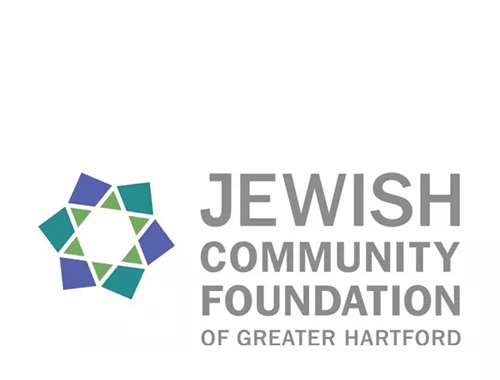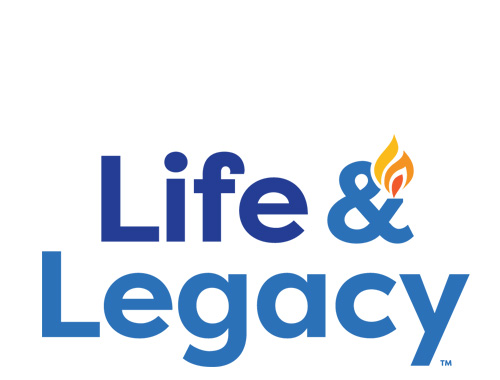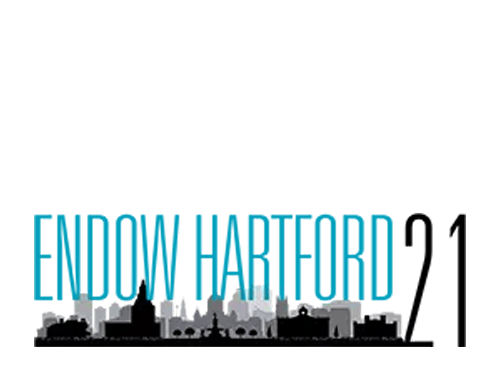Schechter Shavua: April 12, 2024
The Power of Lemons and Potatoes
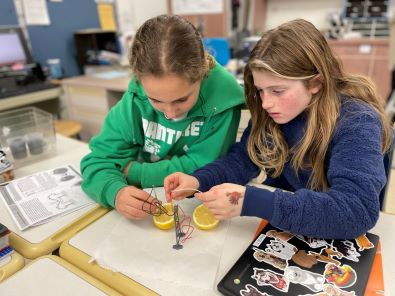 Before embarking on their out-of-town travels, Middle Schoolers lit up (literally!) as they learned about chemical energy, electrical energy, and the chemical energy stored in food. In order to bring to life the concepts of chemical energy in batteries, students used lemons, potatoes and mud to power LED lights and little digital clocks. Shrieks of excitement came from the classroom as their tiny bulbs grew brighter. Coming soon: exciting science labs using electricity, electrons and electrodes!
Before embarking on their out-of-town travels, Middle Schoolers lit up (literally!) as they learned about chemical energy, electrical energy, and the chemical energy stored in food. In order to bring to life the concepts of chemical energy in batteries, students used lemons, potatoes and mud to power LED lights and little digital clocks. Shrieks of excitement came from the classroom as their tiny bulbs grew brighter. Coming soon: exciting science labs using electricity, electrons and electrodes!
4th Graders Pluck at Our Heartstrings… and more!
 Alim 4th gradershave been joyfully learning to play the ukulele in music class! Students first got to know their ukuleles, learning the parts of the instrument, the string names, and how to tune it. They started learning basic chords right away, and students quickly developed a command of 6-8 chords. Since students had varying degrees of experience with stringed instruments, Schechter provided a school instrument for students to take home if they wanted extra practice. After students had mastered playing warm up activities, they excitedly moved on to songs. Students gave input on song selections, and together they chose a fun assortment to master: "Three Little Birds," "The Lava Song," "Counting Stars," and "Somewhere Over The Rainbow."
Alim 4th gradershave been joyfully learning to play the ukulele in music class! Students first got to know their ukuleles, learning the parts of the instrument, the string names, and how to tune it. They started learning basic chords right away, and students quickly developed a command of 6-8 chords. Since students had varying degrees of experience with stringed instruments, Schechter provided a school instrument for students to take home if they wanted extra practice. After students had mastered playing warm up activities, they excitedly moved on to songs. Students gave input on song selections, and together they chose a fun assortment to master: "Three Little Birds," "The Lava Song," "Counting Stars," and "Somewhere Over The Rainbow."
Dor l’Dor Brings Generations Together at Schechter
 Dor L'Dor (Generations Day) enabled special people in our students' lives to come experience the Schechter community. Dear ones got to participate in K-8 ReLiSh and/or Early Childhood Kabbalat Shabbat as well as interesting lessons in the classrooms. We were thrilled to share these moments together!
Dor L'Dor (Generations Day) enabled special people in our students' lives to come experience the Schechter community. Dear ones got to participate in K-8 ReLiSh and/or Early Childhood Kabbalat Shabbat as well as interesting lessons in the classrooms. We were thrilled to share these moments together!
To see photos, click HERE
Ner Tamid: A Celebration of Community
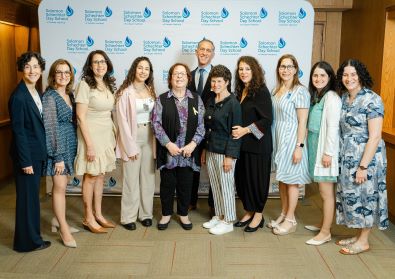 Schechter’s Ner Tamid 2024 brought together hundreds of people from across the Greater Hartford Jewish community to celebrate our connections to Israel and five dedicated women who help facilitate those ties. We celebrated Sharon Conway and Ronnie Siegel, who helped Israeli emissaries join the greater Hartford community, as well as current emissaries Renana and Ruth Ben Porat and Asif Peretz, who strive daily to elevate the connections students feel towards Israel. Speakers expressed the gratitude felt by the Israeli families who have found a new home at Schechter following October 7th. The energy literally swirled around the room as attendees danced the hora and other favorite Israeli dances. We are grateful for the many people who made donations that will enable us to make a Schechter education accessible to all.
Schechter’s Ner Tamid 2024 brought together hundreds of people from across the Greater Hartford Jewish community to celebrate our connections to Israel and five dedicated women who help facilitate those ties. We celebrated Sharon Conway and Ronnie Siegel, who helped Israeli emissaries join the greater Hartford community, as well as current emissaries Renana and Ruth Ben Porat and Asif Peretz, who strive daily to elevate the connections students feel towards Israel. Speakers expressed the gratitude felt by the Israeli families who have found a new home at Schechter following October 7th. The energy literally swirled around the room as attendees danced the hora and other favorite Israeli dances. We are grateful for the many people who made donations that will enable us to make a Schechter education accessible to all.
Click HERE to watch a video of the Israeli dancing
Parashat Tazria—(Anti-)Magical Thinking
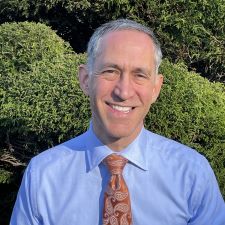 Because disease and chronic illness bring pain and loss, it’s natural for us, as human beings, to seek remedies. We are fortunate to live in a time when doctors understand most diseases, and can treat (if not heal) so many illnesses. Ancient societies did, over time, discover some beneficial herbs and other treatments—but because they didn’t really understand anatomy, physiology, pathology, etc., they also employed countless worthless (and sometimes harmful) remedies: bloodletting, mercury, ground animal organs and more. While our health-care system is certainly flawed, and there are still too many poorly-understood or untreatable conditions, I’d still much prefer to be sick or injured in 2024 than in 1924 or 1524.
Because disease and chronic illness bring pain and loss, it’s natural for us, as human beings, to seek remedies. We are fortunate to live in a time when doctors understand most diseases, and can treat (if not heal) so many illnesses. Ancient societies did, over time, discover some beneficial herbs and other treatments—but because they didn’t really understand anatomy, physiology, pathology, etc., they also employed countless worthless (and sometimes harmful) remedies: bloodletting, mercury, ground animal organs and more. While our health-care system is certainly flawed, and there are still too many poorly-understood or untreatable conditions, I’d still much prefer to be sick or injured in 2024 than in 1924 or 1524.
With this in mind, it’s instructive to consider the Torah’s approach to the skin diseases and conditions categorically termed tzara’at, and misleadingly translated as “leprosy.” This week’s Torah portion catalogs dozens of variations that affect skin and hair and which were deemed contagious and sources of ritual impurity. Diagnostic criteria are offered, along with isolation and quarantine guidelines. Next week’s portion offers rituals to bring the affected person back to the community when they were no longer deemed contagious or impure.
But what is glaringly missing? Any instructions on healing or curing. In other ancient societies and religions, we’d surely have found recipes for herbs to be soaked or burned, body parts to be manipulated, or unguents to be applied. Why did the Torah omit any healing measures from its instructions?
In times of desperation, human beings gravitate towards magical thinking, and magical thinking quickly becomes superstition. If we just knew the secret word, the magic potion—we imagine—we could miraculously cure, we could raise the dead, we could control nature. But if there’s one consistent message of the Torah, and especially the book of Vayikra/Leviticus, it’s that God (and not spirits, or demons, or Nature personified, or human beings) is in charge—and we cannot control God.
Back in the time of the Torah, there were no effective remedies to treat skin conditions, and so the Torah refused to offer one. I don’t believe that the Torah would have the same attitude towards modern medicine—indeed, respect for medical advice is a universal element of Jewish practice across denominations—but modern medicine is based on genuine, experimentally-verified understanding of nature. The message of Parashat Tazria may be that while we’re supposed to do what we can to improve our health, we also have to know when to accept that there is nothing we can do. When the choice is between superstition or acceptance, the Torah urges acceptance. This approach is beautifully captured in the “Serenity Prayer” attributed to Reinhold Neibuhr and Winnifred Crane Wygal: May God grant me the serenity to accept the things I cannot change, the courage to change the things I can, and the wisdom to know the difference. May we too be blessed with serenity, courage and wisdom.
Shabbat shalom,
Rabbi Jonathan Berger
Head of School
Question for the Shabbat table:
- The Torah describes many kinds of sacrifices, including “Todah/gratitude” sacrifices. In your opinion, why didn’t the Torah contain a “Healing sacrifice” akin to our Mi Shebeirakh prayer?
- In your opinion, are superstitious practices/beliefs harmful or harmless?
Solomon Schechter Day School
of Greater Hartford
26 Buena Vista Road
West Hartford, CT 06107
© Solomon Schechter Day School of Greater Hartford | Site design Knowles Kreative

